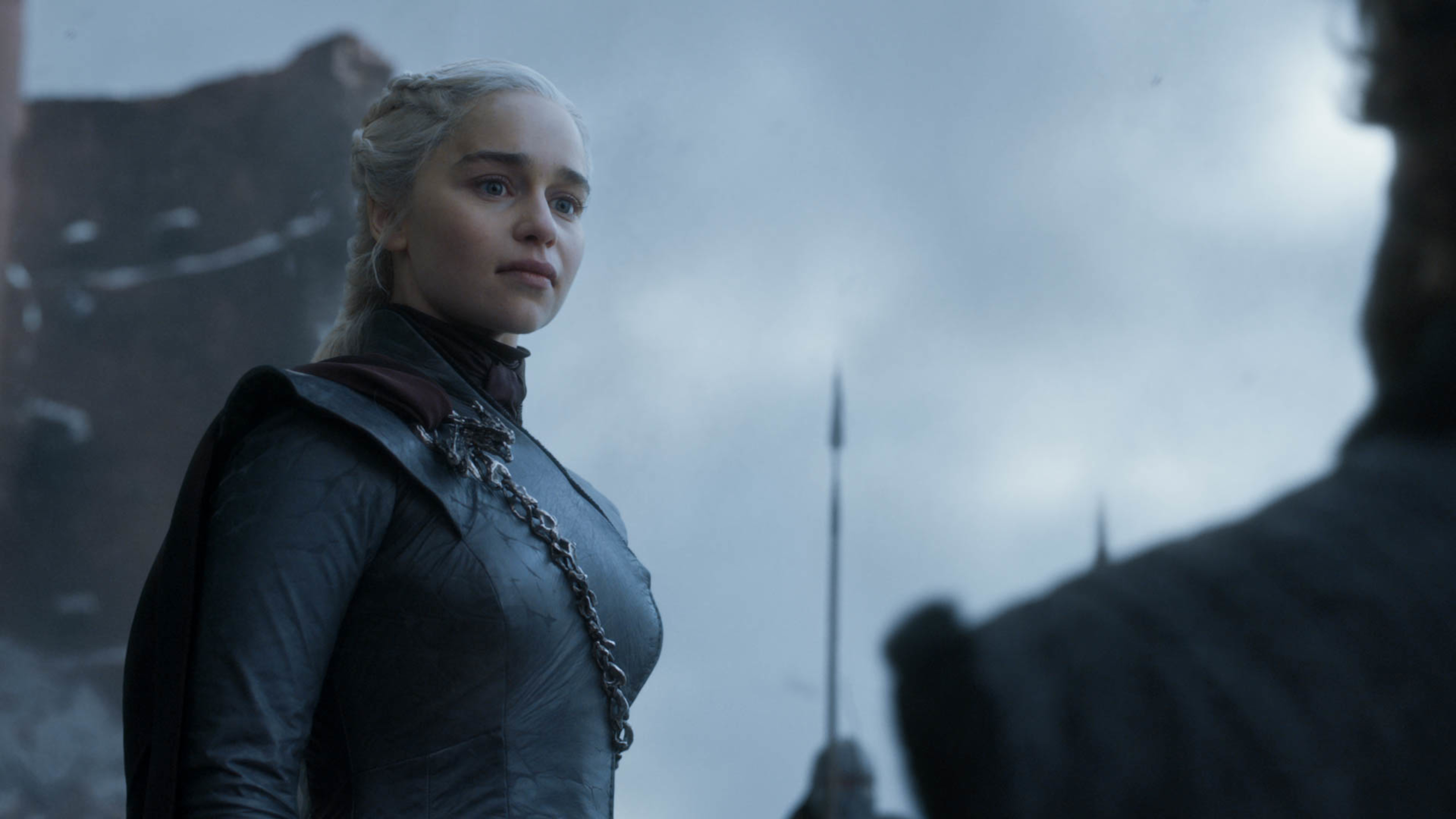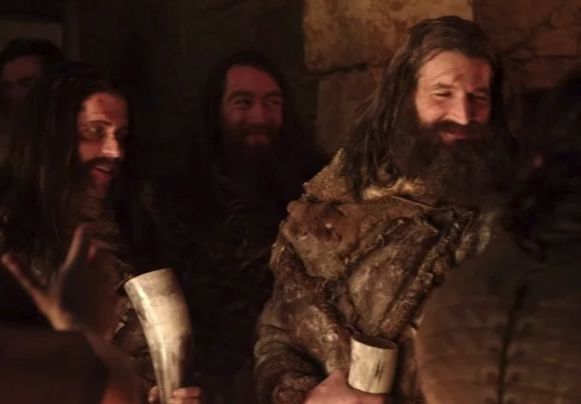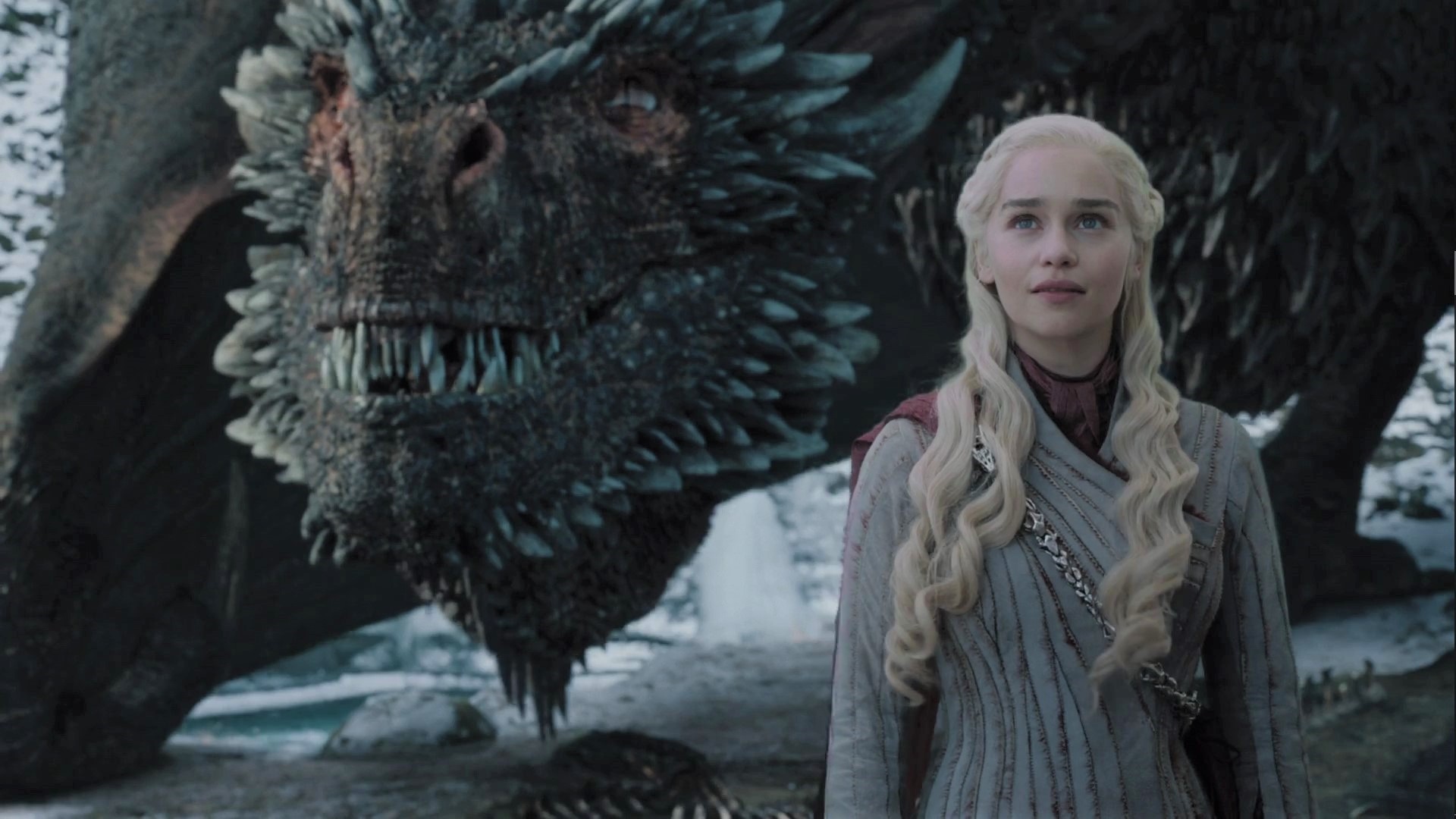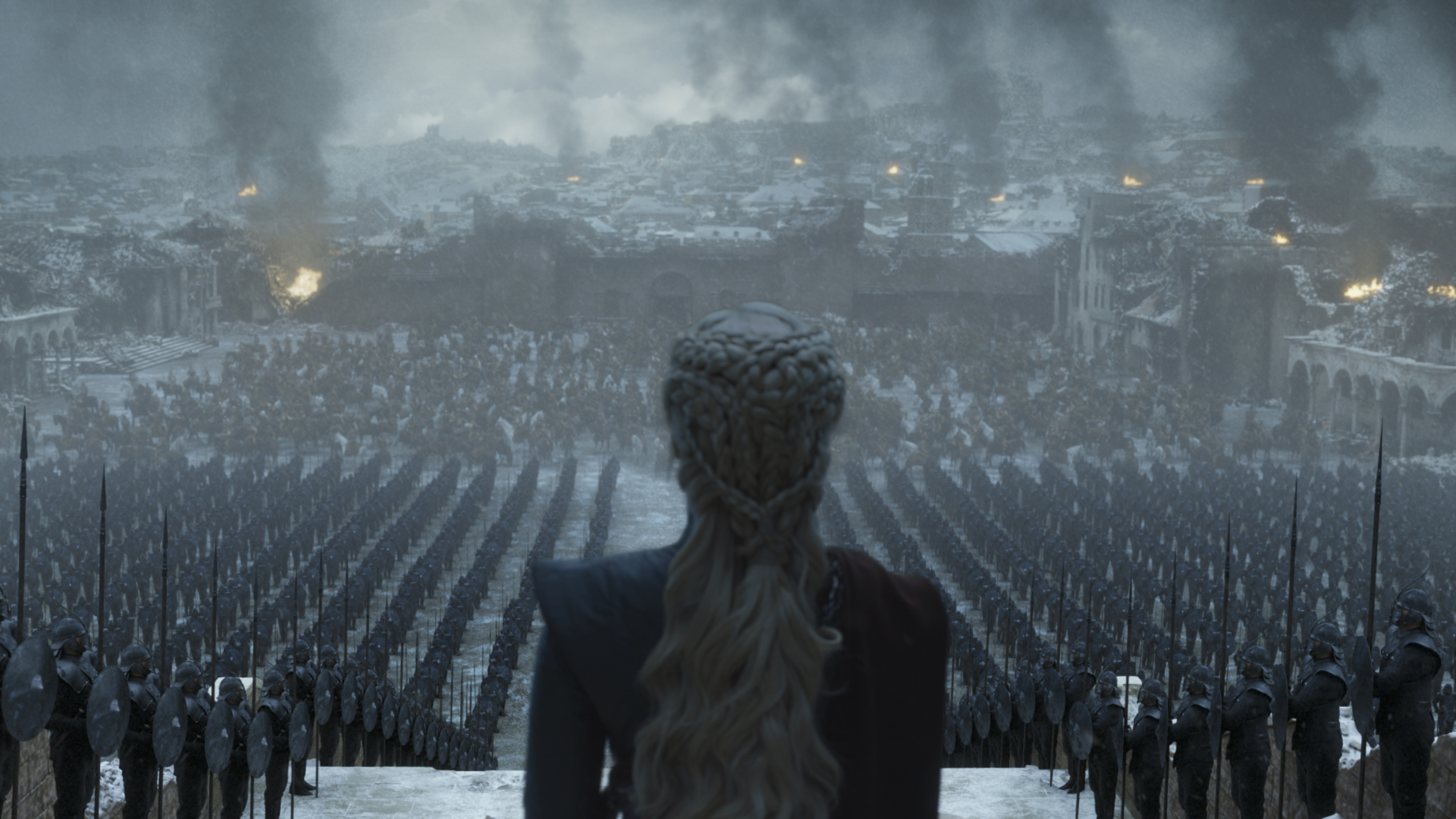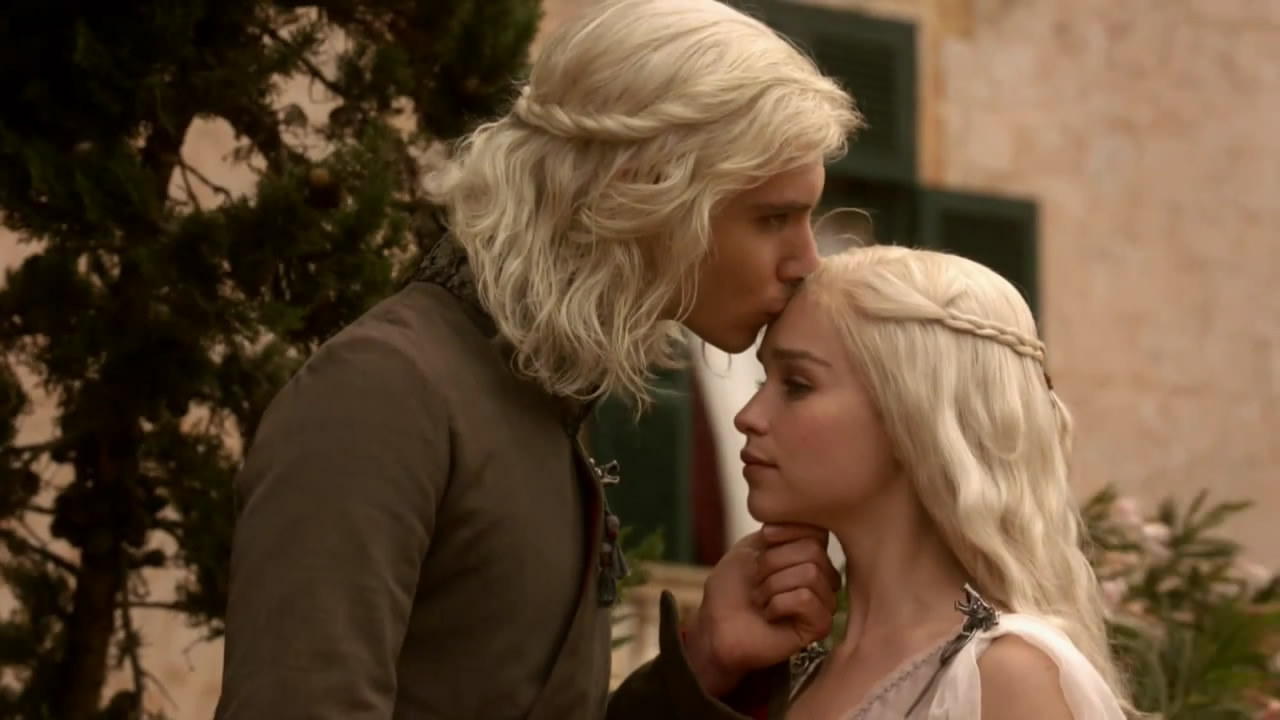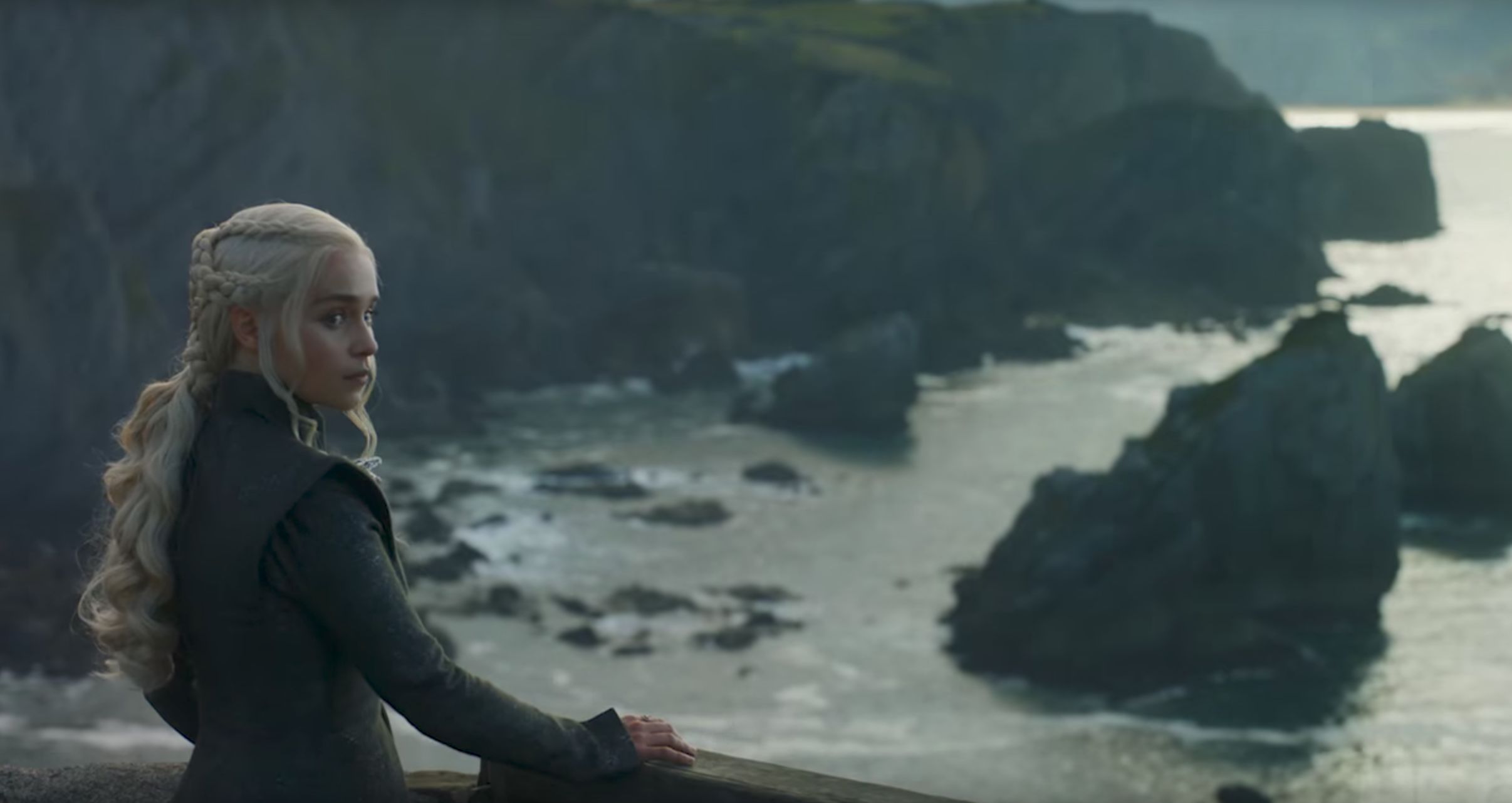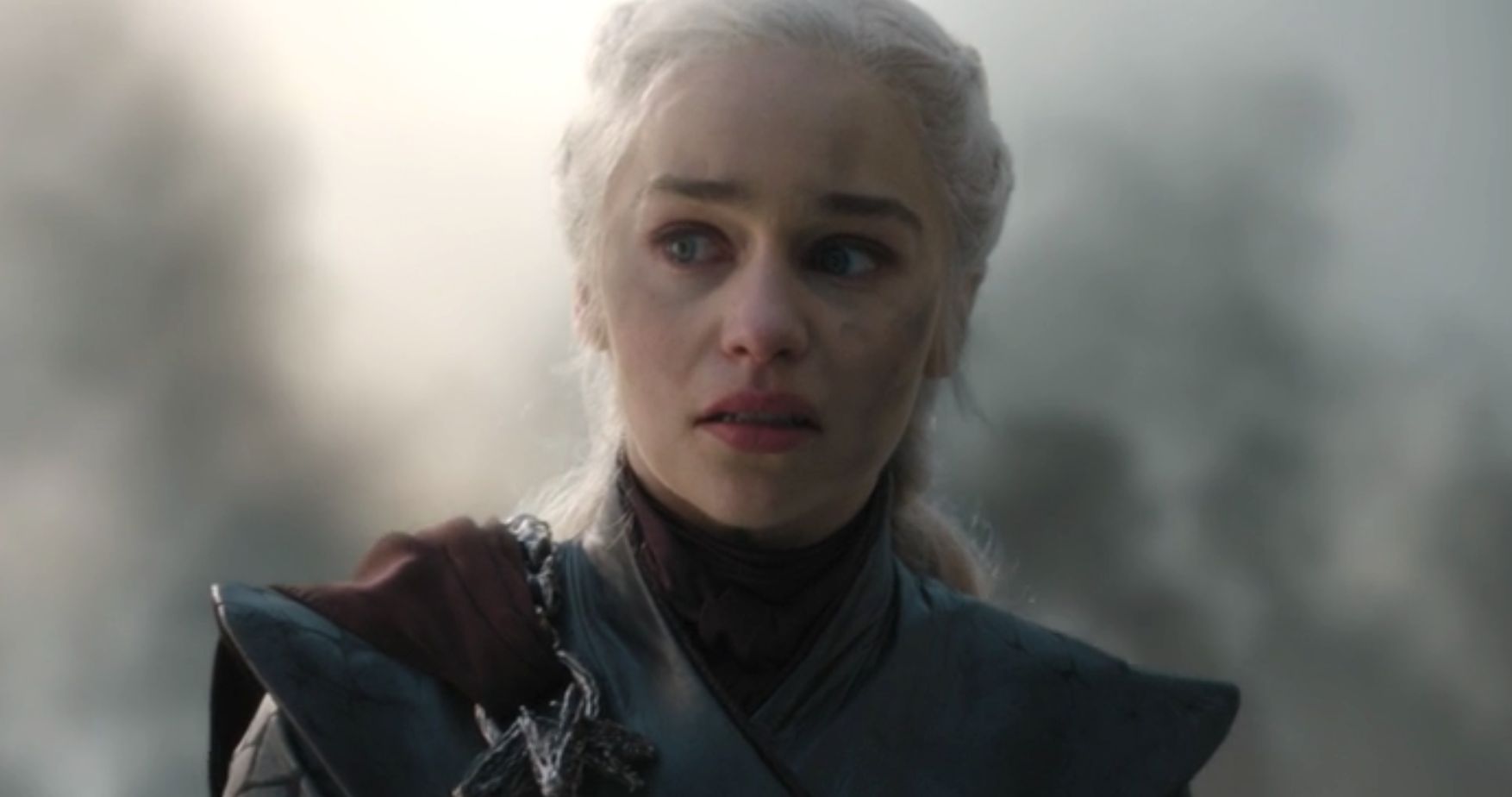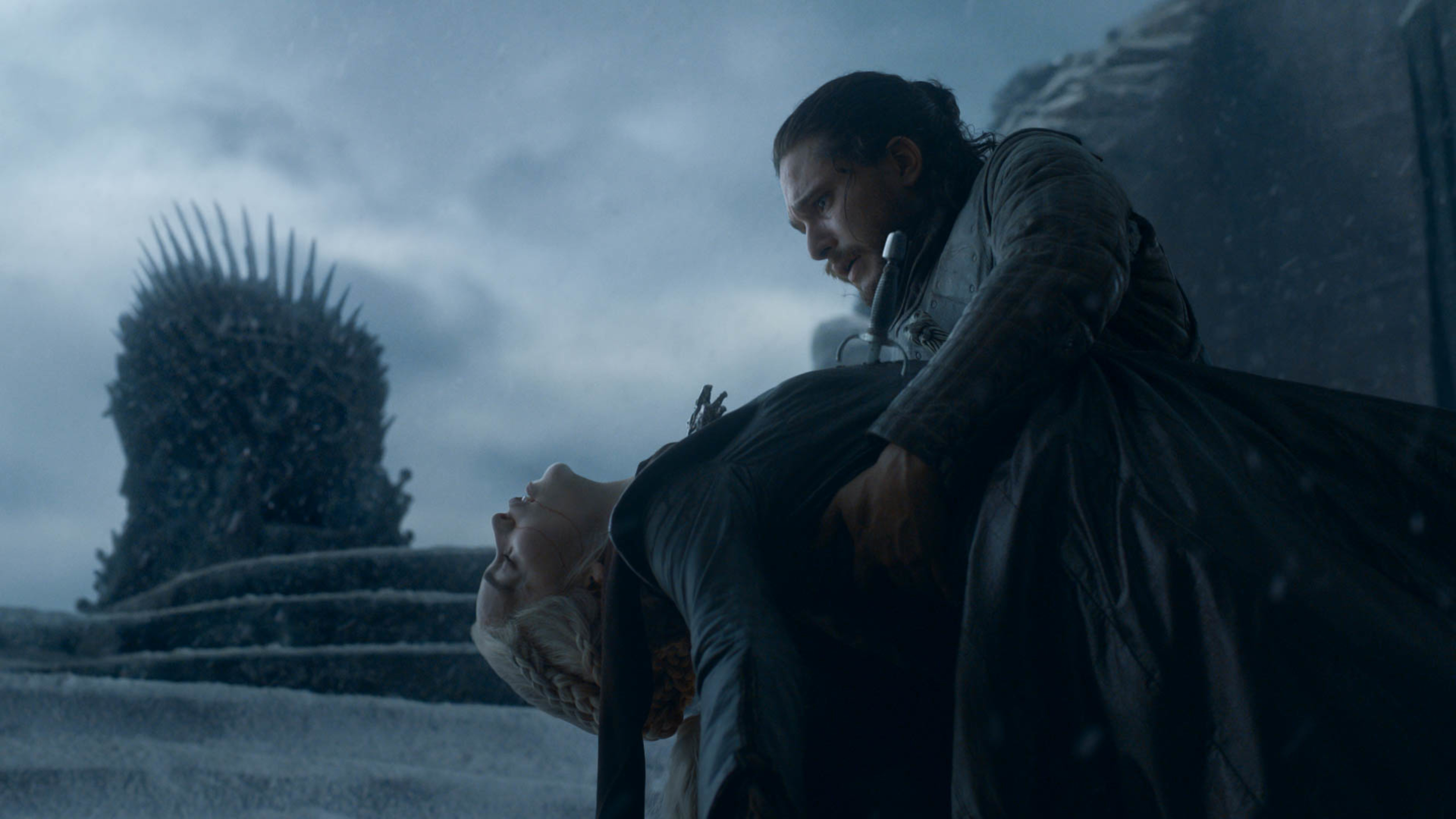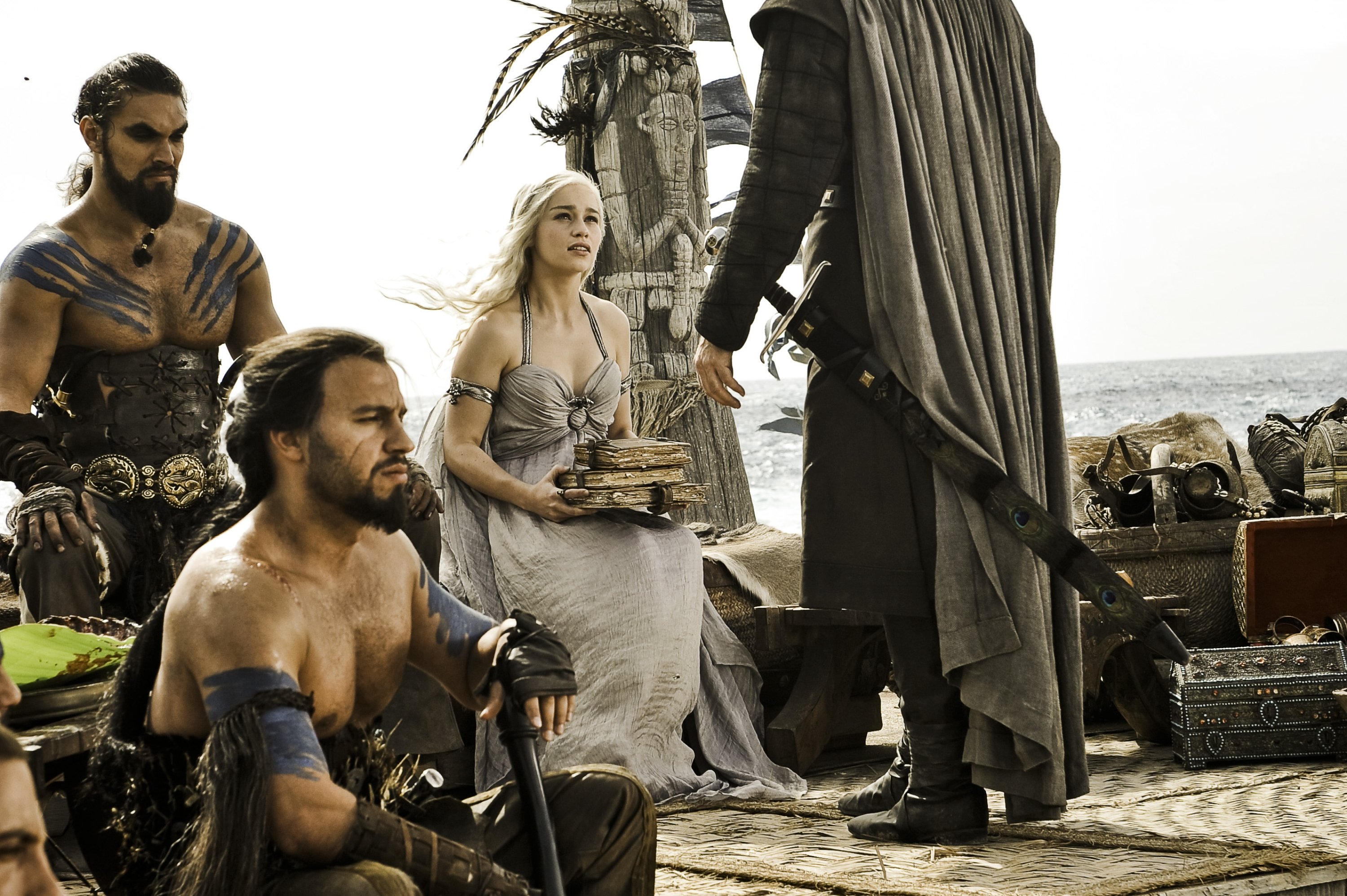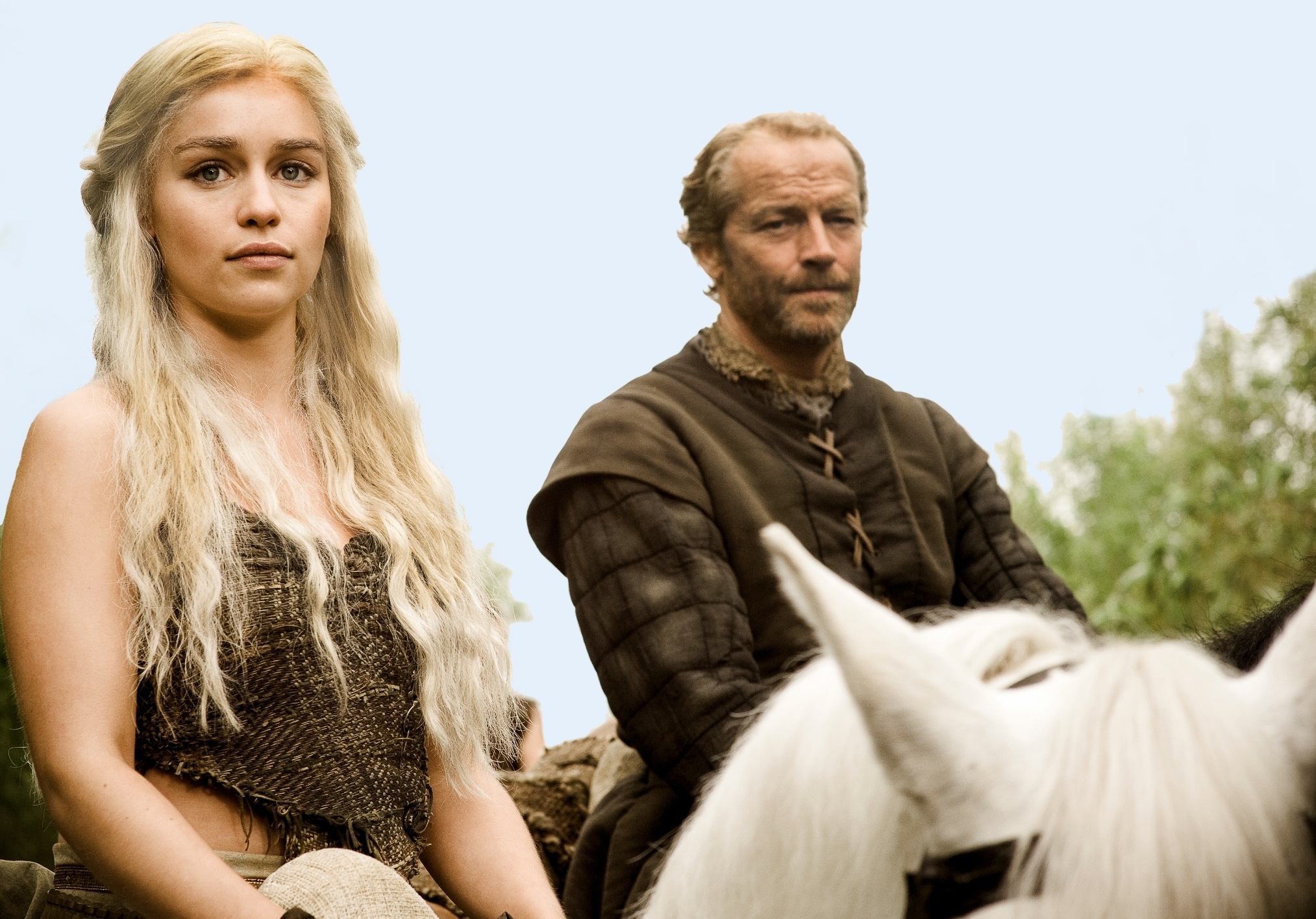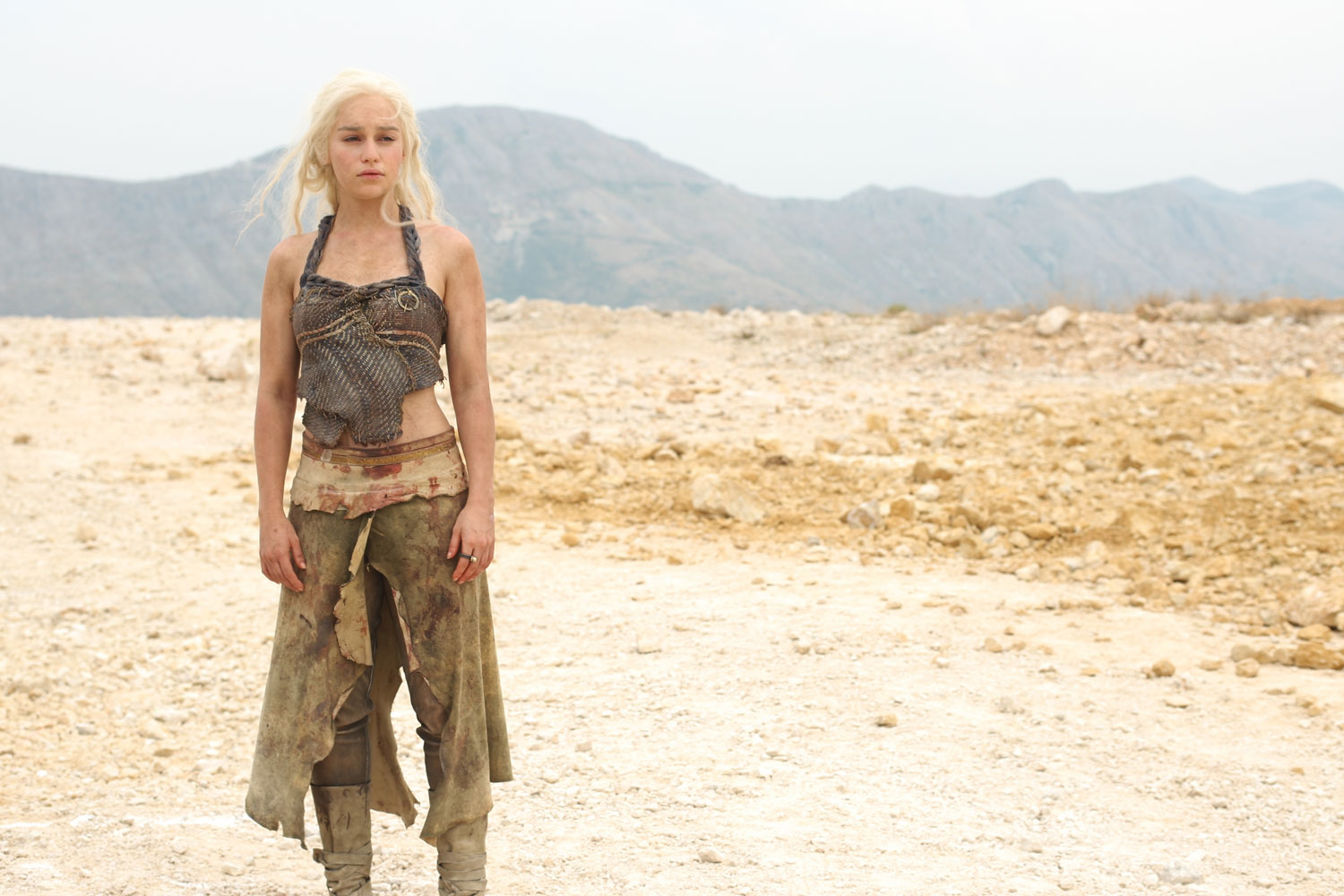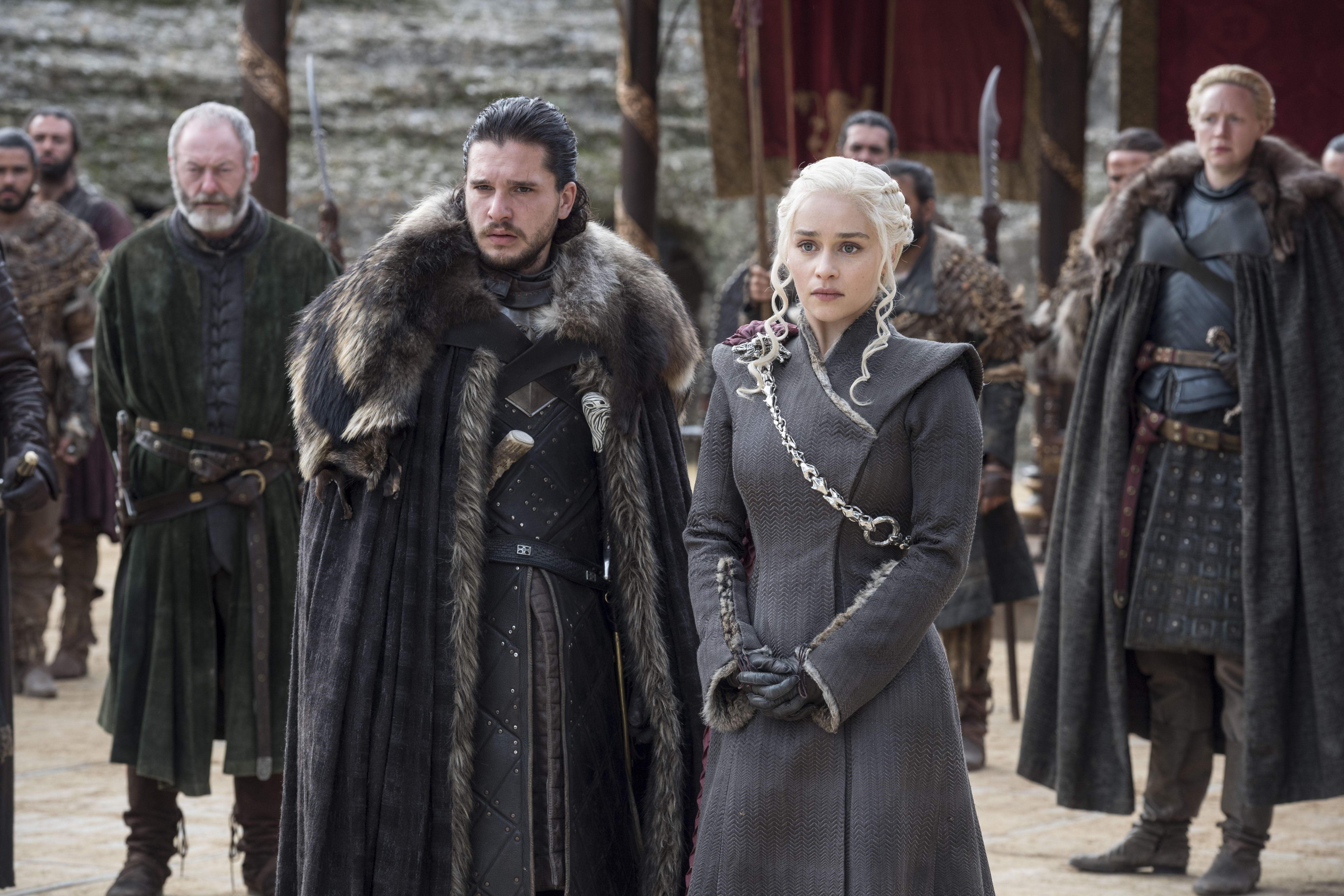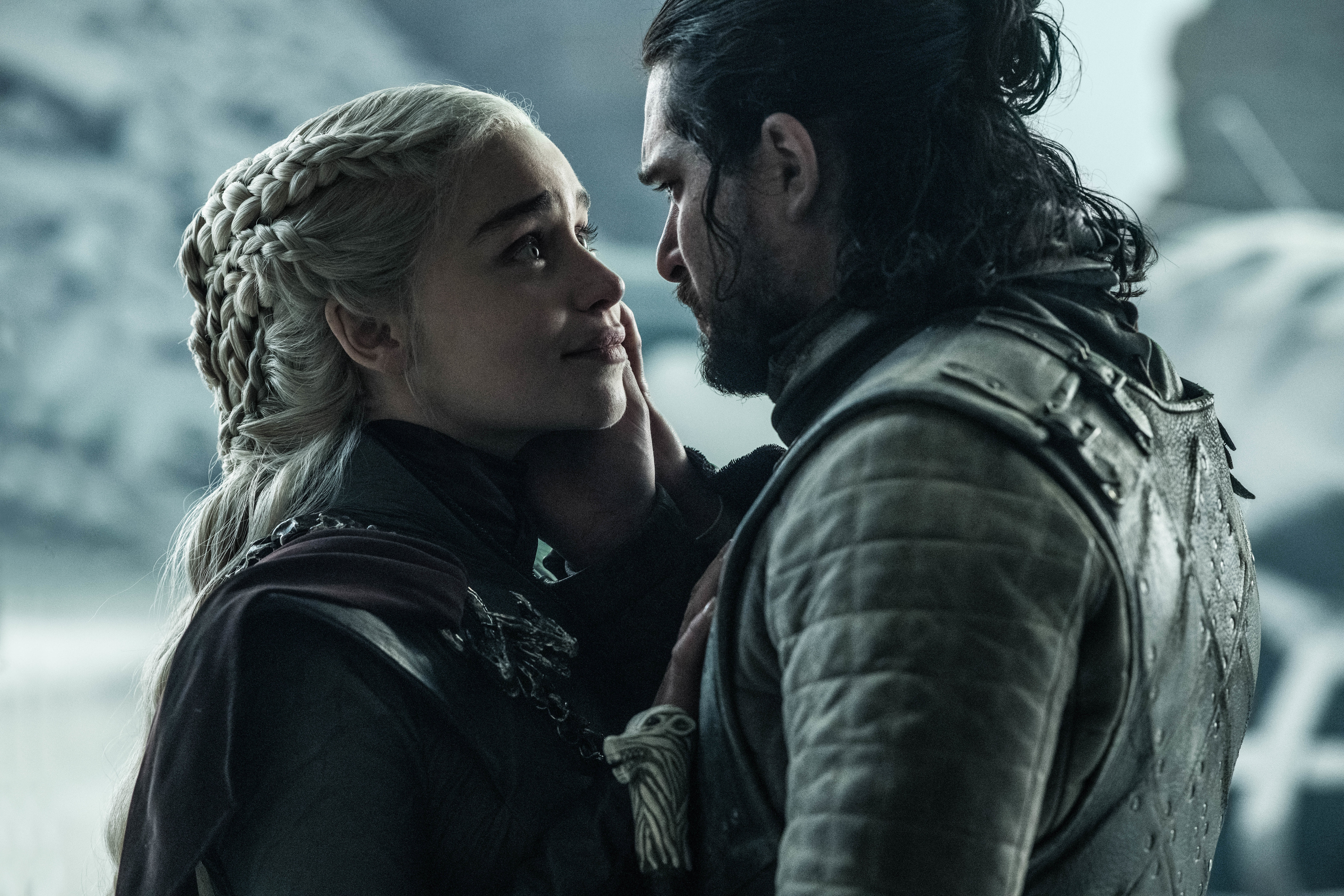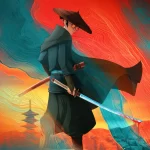It was the best of times, it was the worst of times. So went the fortunes of the Daenerys Targaryen on Game of Thrones, who began as the exiled daughter of the near-dead House Targaryen and rose, often through sheer force of will, to become quite possibly the most powerful person in the Known World. In the final episode, we saw her story turn tragic, her dreams fall unfulfilled, cut down by Jon Snow, the man she loved. Yet she did, albeit briefly, get to touch the Iron Throne. Her’s was a journey for the ages, the stuff George R. R. Martin’s dreams are made of.
I an interview with the The New Yorker, actor Emilia Clarke gives us her take on who Daenerys Targaryen was, who she became and the how she feels about her character’s final act. In a word, it’s complicated.
An anecdote might help. In February 2018, Clarke was at an Oscar party at the famed Chateau Marmot in Los Angeles. Clarke was a bit tipsy — “six glasses of champagne in” — when freaking Beyonce approached her and started gushing about her and her character on Thrones. What was Clarke’s internal response?
And all I wanted to scream was ‘Please, please still like me even though my character turns into a mass-killing dictator! Please still think that I’m representing women in a really fabulous way’ . . . I was just, like, Oh, my God, my absolute idol in life is saying that she likes me, and I know for a fact that by the end of this season she’s going to hate me.
Of course, Clarke couldn’t reveal to anybody what happened to Daenerys in season 8, not even Beyonce. But she can say all she wants now, addressing everything from Dany’s turn to the dark side to that infamous Starbucks coffee cup incident. “So, I’m just going to let you in on a little Game of Thrones trivia,” Clarke said. “We don’t drink Starbucks. So anyone who’s clucking around with a Starbucks cup is someone who is not a cast member. There’s no mocha-wocha-frappuccino anywhere.”
So, Clarke’s blaming a crew member and not the cast? “Yes, I am,” the London-born actor said. “I’m ratting out craft services. It could’ve been anyone’s gin. Or it could have been some very fancy producer’s mochaccino.”
But how could Clarke not have noticed that modern-day coffee cup sitting on the table near her? If anyone has worked on a large movie set, they know how busy, distracted and tired everyone can be. “You’ve got a lot of cast, and you’ve got two-hundred-odd extras in that room,” Clarke explained. “But you know who I could actually quite happily blame? Did you notice some quite familiar-looking extras in that particular scene?”
When Kit is having his kind of “Cheers,” and he’s downing all the booze, there are two people who look slightly like a Metallica tribute band, and they are our showrunners and writers, David Benioff and Mr. Dan Weiss. They are in the shot. Most people were laughing at their terrible handlebar mustaches rather than looking at anything that was on the table. When I was watching it, I was too busy laughing at their hilarious return to acting. So there are many excuses for the coffee cup for you. Pick whichever one you’d like.
The conversation turned more serious as Clarke discussed the way Daenerys’ story ended, and some of the backlash it received. “I read these scripts coming on to two years ago now,” she said. “When I did, I took a very long walk around London in a daze, not quite knowing how to digest the news.”
I had no idea what to expect for this last season. I hoped for some juicy things to get into … but I didn’t see this coming. Throughout the show, there have been these glorious moments of Daenerys taking on a very strong role in a battle or in a decision to be made. There were these wonderful moments when she takes control, and it’s really liberating and beautiful. She frees people, she kills the baddies, and it feels good.
Clarke admitted that she was worried about how long Daenerys’ lucky streak would last. “It’s been beautiful and amazing, but I’ve been looking over my shoulder the entire time while everyone else gets a more human—for want of a better word—story line,” she said. “Daenerys has quite consistently had this road to salvation, and she’s been sitting atop a very safe mountain.”
I remember the boys—our writers and showrunners—telling me that Daenerys’s arc is that of Lawrence of Arabia. I watched Lawrence of Arabia, and I was, like, ‘Great, cool. He’s brilliant. He survived, and it’s wonderful.’ But then you remember how that movie ended, with Lawrence’s disintegration. I didn’t quite put those two things together. Or maybe I didn’t want to see it coming because I care about Daenerys too much.
Clarke says that Daenerys, like Lawrence, was “fundamentally … brought in as a savior. He (Lawrence) goes in and fights for the people, but then, ultimately, it’s a story about how power corrupts absolutely. You see power turn this man wild and mad. He can’t see anymore through the haze, the giddy highs, of being in charge. And that’s what Daenerys experiences.”
And yet I care for her so much. She’s been a part of me for so long that, in reading this script, I did what any actor is told to do and would do. You have to agree with your character. If you don’t agree with your character, then you shouldn’t take the job.
Getting to that point wasn’t easy for Clarke: “I really just had to sit there and wrestle with how I could make good on what they had written. Because that’s her. They are the writers. They have made this woman, and I’m going to take on what it is and try and interpret that to my best ability.”
Clarke reverse-engineered her character development arc, seeing Daenerys’ “first glimmer of coldness, in Season 1, when Khal Drogo kills my brother, Viserys Targaryen—Jason [Momoa] kills Harry Lloyd . . .”
Yet Clarke is obviously willing to defend Daenerys with a passion. “I’ve always wanted to warm her up, because I’ve seen the more feminine aspects of her,” she said. “I’m not saying that as anything derogatory at all. But she was a child. She was sold. She grew up around a life that was written for her.”
She (Daenerys) was on the run her entire life. She lost every single person that meant anything to her. She was brought up by a brother who was telling her why her family had been taken from her, because people haven’t allowed them to inhabit the Iron Throne. So that’s always been her mission and, at every turn, she’s sacrificed everything. She sacrificed being a mother. She sacrificed love. She sacrificed happiness. She sacrificed an easy life. She sacrificed friends. She sacrificed everything to be the ruler that she believes herself to be.
Clarke believes that after all of her losses, trials and tribulations, it was her reception in the North and the failed love affair with Jon Snow that finally pushes Daenerys into doing what she did. “She encounters the dark side … She’s not wanted. She’s not loved completely there … And that disappointment is the final thing that breaks her as a human being, because, my God, all she’s known is pain, sacrifice, and abuse. All she’s known is people turning on her, people betraying her, and she’s completely alone. And so, with all of that, I think that it brings us to the moment where she’s on top of the dragon and making that choice.”
“Whatever it is,” Clarke says, “everyone’s got this dark part of themselves that no one really likes inhabiting. It’s something we all really struggle with.”
And what about the fan response to the Thrones finale? “I always knew that the show was never going to satisfy everyone,” Clarke said. “I watched and loved too many television series to ever think that would be possible. The stories are too vast, the characters too complex … But to me it seemed like the only way it could end.”
[Daenerys’] final moment sort of passed me by when I first read it. And then I suddenly was ‘Wait a second.’ And I went back and I reread it, and I was, like, ‘Oh, great. Excellent. What I read was correct.’ But then I had to wrestle with that. The actual acting of it was hilariously long and arduous, but it was incredibly emotional.
Clarke described Daenerys’ last scene as “poetic and beautiful.” She had specific ideas about how to play those final moments. “As I say, I always wanted to show that softer side of Daenerys—or more textured … It’s not that I wanted to show her as ‘mad,’ because I really don’t like that word. I don’t enjoy fans calling me ‘the Mad Queen.’ But she’s is so far gone in grief, in trauma, and in pain. And yet our brains are fascinating in the way that they find a fast route to feel O.K., whether you’re relying on a substance or you’re mildly deluded.”
I wanted to show her as we saw her in the beginning: young, naïve, childlike, open, and full of love and hope. I wanted so much for that to be the last memory of her…And it absolutely breaks my heart that anyone would think anything bad of her. But I’m sure they will, and I can’t control that.
“It doesn’t take away from her strength, though,” Clarke continued. “It doesn’t take away from her being an empowered woman. I think that, when you see the final episode, they’ll see there is a beginning and a middle and an end to her as a character. I think that there are people that will agree with her, because she’s a human being.”
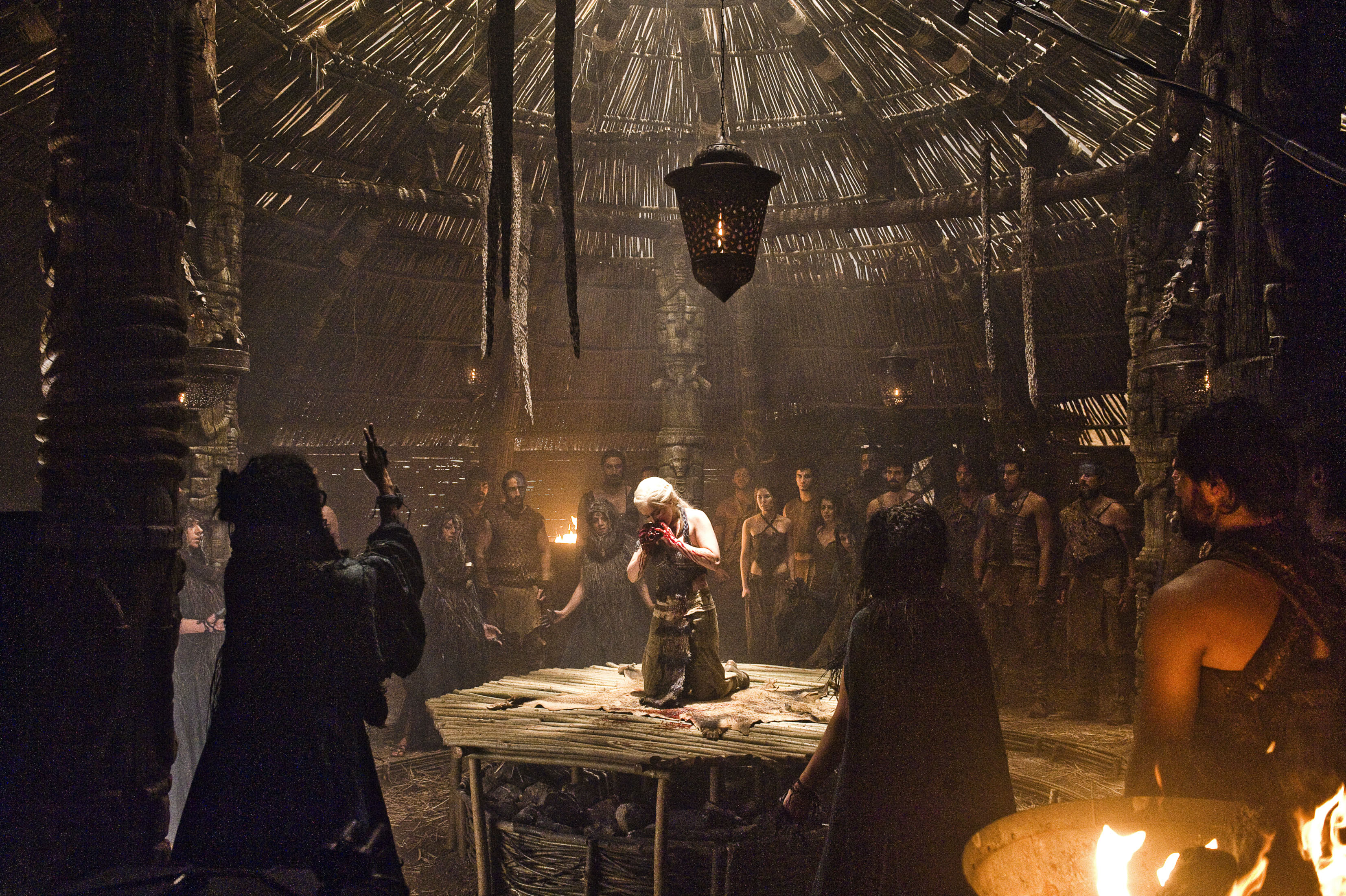
Beyond that, Clarke talked about both her and Daenerys’ incredible Game of Thrones journey, all the way to the beginning where Daenerys has to eat a horse heart as part of a Dothraki proving ritual. “You convincingly eat it like you haven’t eaten anything for a week, and on eating this heart you will get everything that you’ve ever wanted in life,” she said. “Ultimately, it was just gelatin, a big gummy bear with dried pasta running through it to make it look like real arteries. Yummy.”
Early on, among the toughest scene Clarke had to play was the one where Daenerys suffers sexual abuse at the hands of Khal Drogo at the beginning of their relationship. “This is a really weird sentence to come out of my mouth, but I’m going to do it,” she began. “I couldn’t have been raped by anyone more lovely. Jason Momoa plays Khal Drogo. And the scene we had—I mean, he cried more than I did. It was brutal, and he was so kind and so caring. He was so protective of me that those scenes were actually manageable.”
That said, the scene she had the most difficulty with was her very first: Daenerys walking into the bath. “That was brutal because you’re literally just standing there naked in front of people you’ve not really met before. And there’s a camera.”
But that was long ago. It’s time to look at the show from a raven’s eye view. “I couldn’t have been more overjoyed at getting the opportunity to inhabit this character,” Clarke enthused. “This was also my first job … In so many of those early moments, you probably saw a lot of Emilia’s pain rather than Daenerys’s pain, because it’s not comfortable, it’s not easy. A film set is an incredibly scary place to be for the first time … I was always protected. Everyone was very sweet and lovely. But I was a young girl starting off in the industry.”
And let’s remember, Clarke suffered through two brain hemorrhages during the run of the show, although the public at large didn’t know anything about it until very recently. “I didn’t want to give anyone a reason to say, ‘Oh, she’s just a kid—she can’t handle this,’” she remembered. “You just want to do the job well. You don’t want to give anyone a reason to go, ‘Oh, no, look at her—young, inexperienced female, whatever—she’s not capable of doing it.’”
Clarke’s’ battle with the effects of her surgeries and their aftermath is a story in courage perseverance. “I just felt weak and consistently in this mode of ‘Please don’t fire me. Please, please don’t let me fuck this up. Please don’t let anyone have an opportunity to think I’m anything other than beyond capable of taking on this role.’”
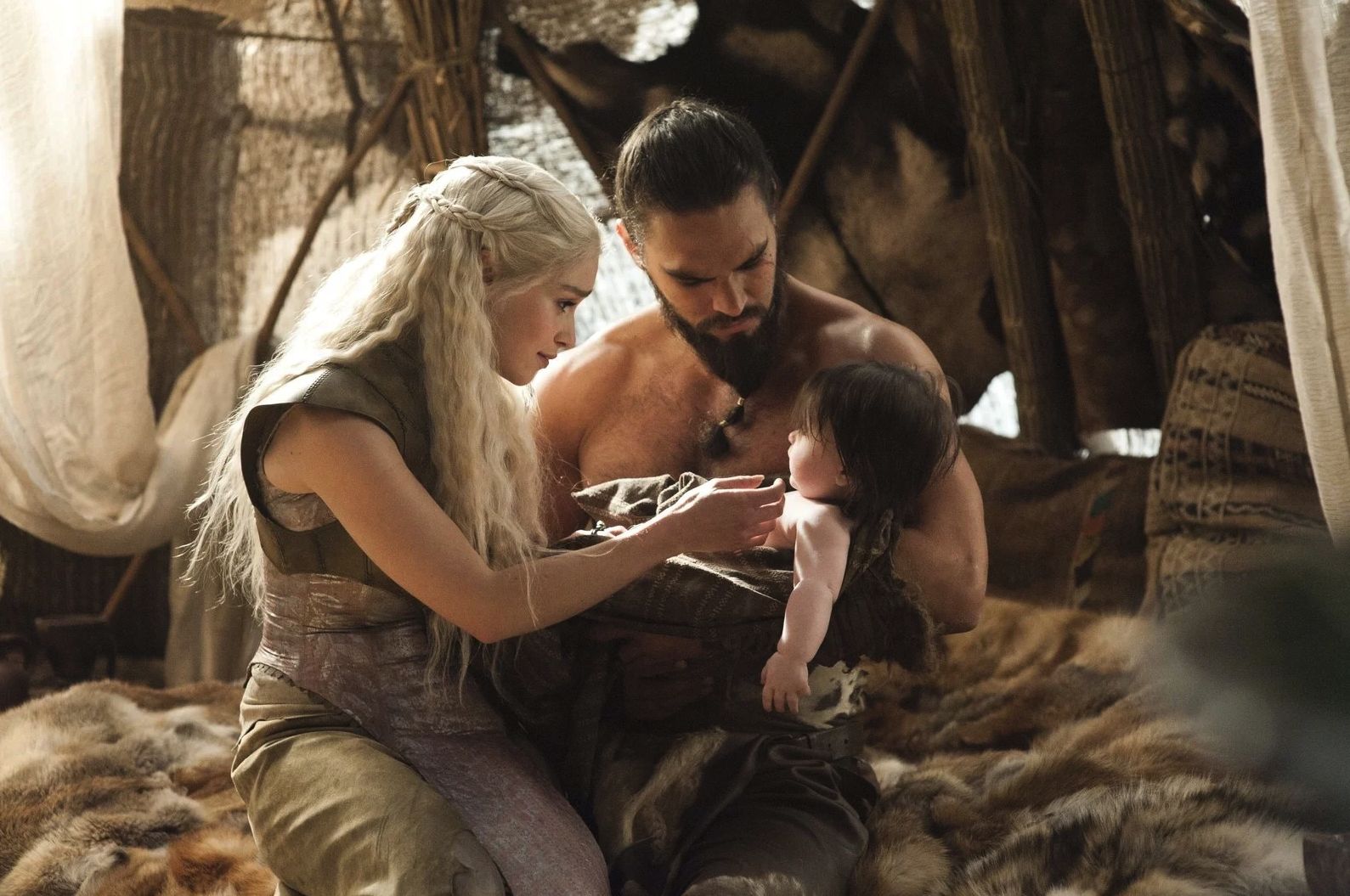
Daenerys, Drogo and Rhaego S2 Ep10. Helen Sloan/HBO
“Every day I would fight my own demons of thinking, You’re sick, you can’t do this,” Clarke remembers. “You’re tired, give in. Stop. I just bulldozed through.”
There were a couple of seasons where I just questioned everything and struggled through everything and felt a tremendous amount of guilt at not being able to fully inhabit this role of a lifetime that I was given when I had many friends who were still knocking on casting directors’ doors. It left me fatigued and exhausted and anxious and worried and fearful every day.
The fear of another brain hemorrhage always haunted Clarke in those early days. “In moments of extreme stress, my fear of dying was dialed up to a million,” she admitted. “There were many moments where I would just take one of my hair or makeup girls aside and just go, ‘I think I’m dying, and I’m not. Can you just hold my hand? Could you just look at me and tell me that I’m all right?’ And they would look at me like I was mad and try and help me breathe through it.”
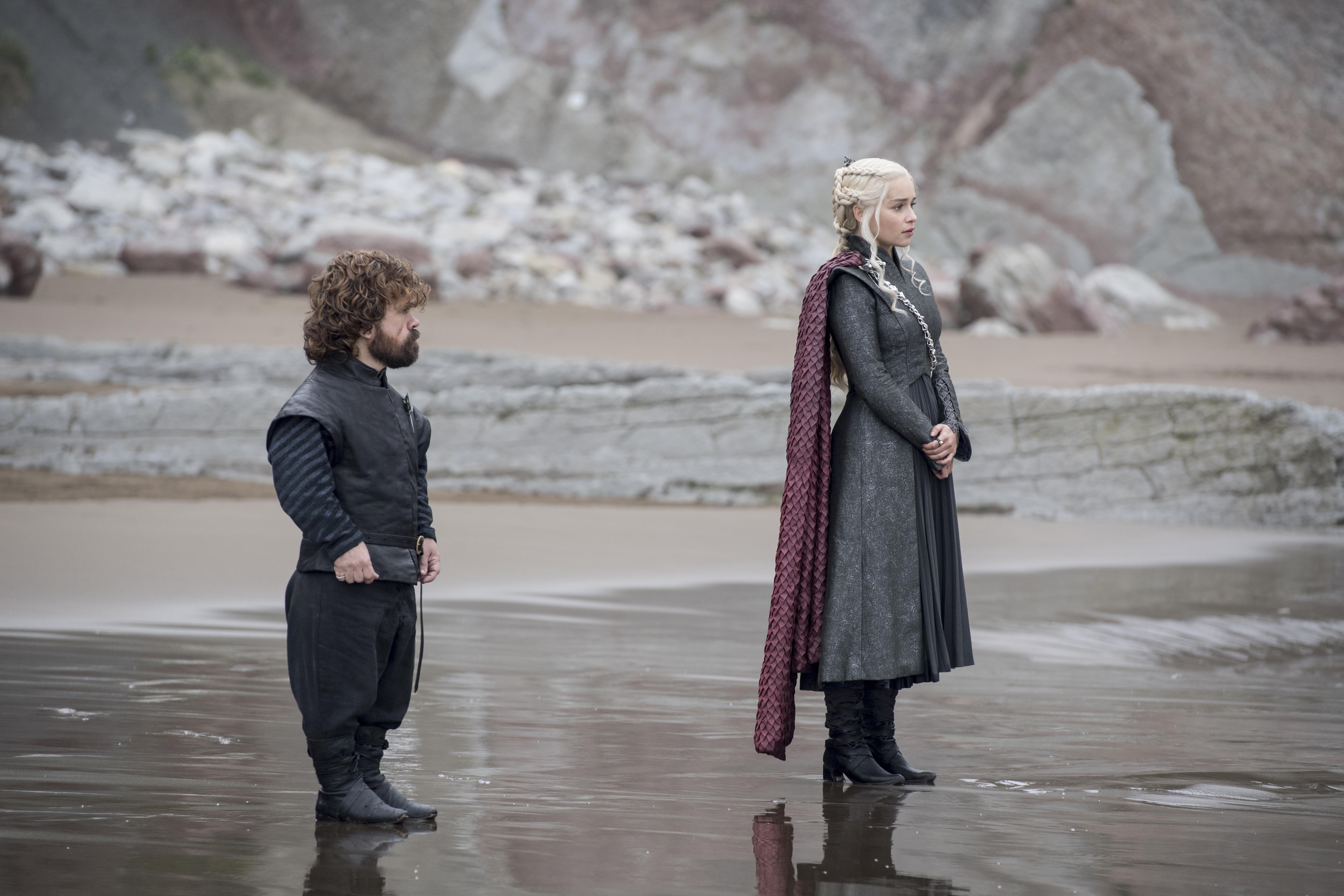
Game of Thrones is over, but HBO is readying at least one prequel series to follow it up. Does Clarke have thoughts about it? “I just think that it would be lovely to just let this lie for a minute before doing anything else,” she said. “But then it’ll be something completely different, and it won’t be Game of Thrones. It won’t be called Game of Thrones. It will be inspired by Game of Thrones characters, a fantastical series, set in a similar time.”
I’m of the mind-set of, like, ‘Leave while the party’s still going,’ because then you’re going to leave with some good memories. But you’re talking to somebody who’s been living in this character for ten years, so I’m, like, ‘What other story is there to tell?’ I know that there’s lots of people saying that they wish that the episodes were longer, and that they wish there were more of this season, which I totally respect.
Is there anything Clarke would change about season 8? “I would’ve loved some more scenes with me and Missandei,” she said. “I would’ve loved some more scenes with me and Cersei.”
The genocide was there. That was always going to happen. And I just think more dissection and those beautifully written scenes that the boys have between characters—that we are more than happy to contently sit there and watch ten minutes of two people talking, because it’s beautiful. I just wanted to see a bit more of that. But I’m in no position to critique the geniuses that have written eight seasons’ worth of wonderful stuff.
So what’s next for Clarke? “I really want to learn. I’ve got a lovely job that I’m going to do with Björn Runge, who directed The Wife, which I thought was magnificent. It’s a small film about Elizabeth Barrett Browning.”
And as for all those fans naming their daughters Khaleesi? “I would say, ‘Work it, girls!’” Clarke replied. “I’ve enjoyed being called that, and I think they will, too.”
To stay up to date on everything fantasy, science fiction, and WiC, follow our all-encompassing Facebook page and sign up for our exclusive newsletter.
Watch Game of Thrones for FREE with a no-risk, 7-day free trial of Amazon Channels



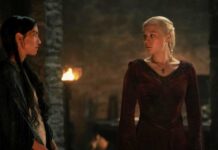
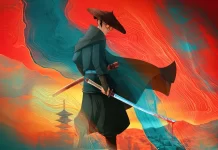














![[Book Review] The Blade Itself (The First Law Trilogy) by Joe Abercrombie](https://bendthekneegot.com/wp-content/uploads/2018/01/1516047103_maxresdefault-218x150.jpg)







